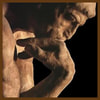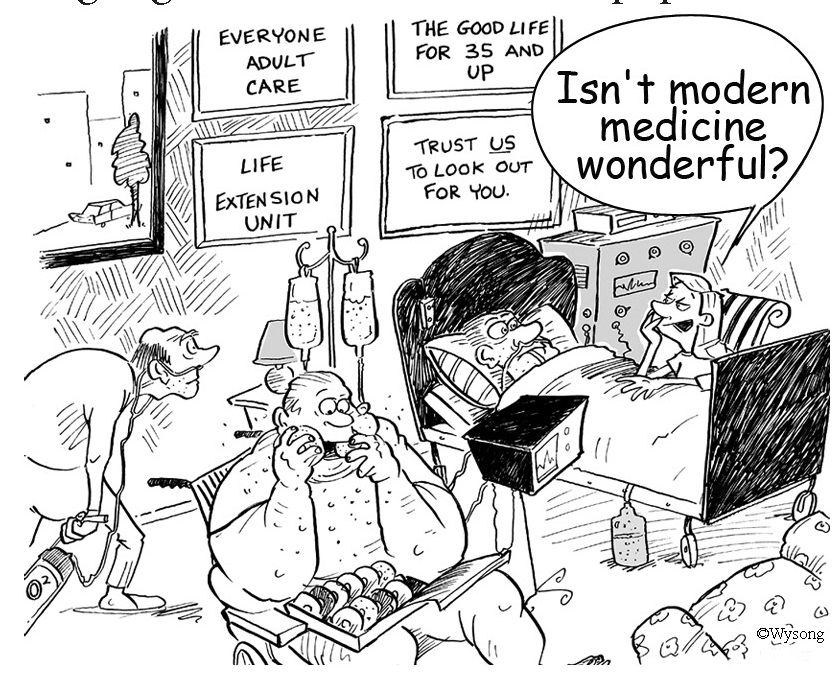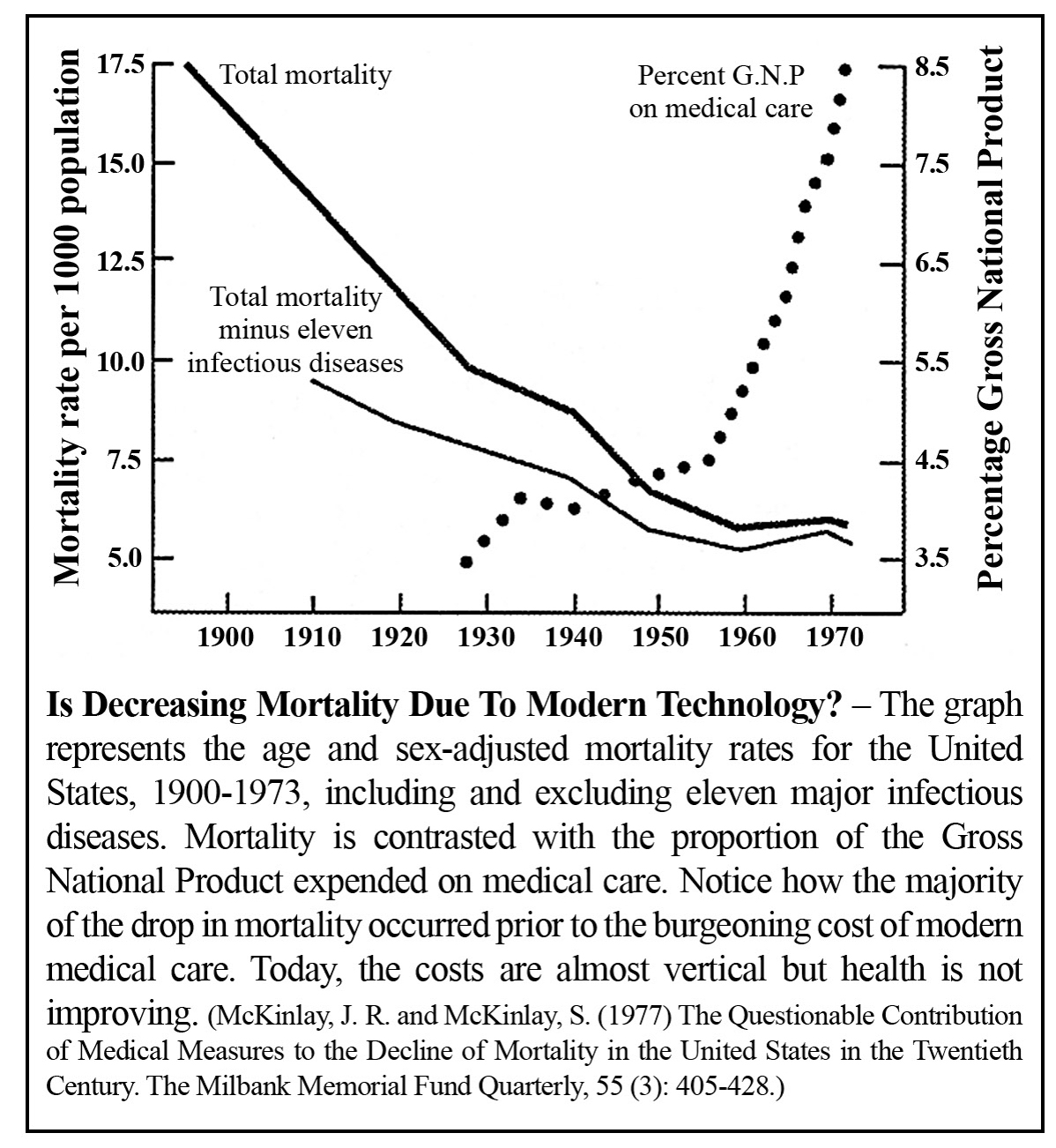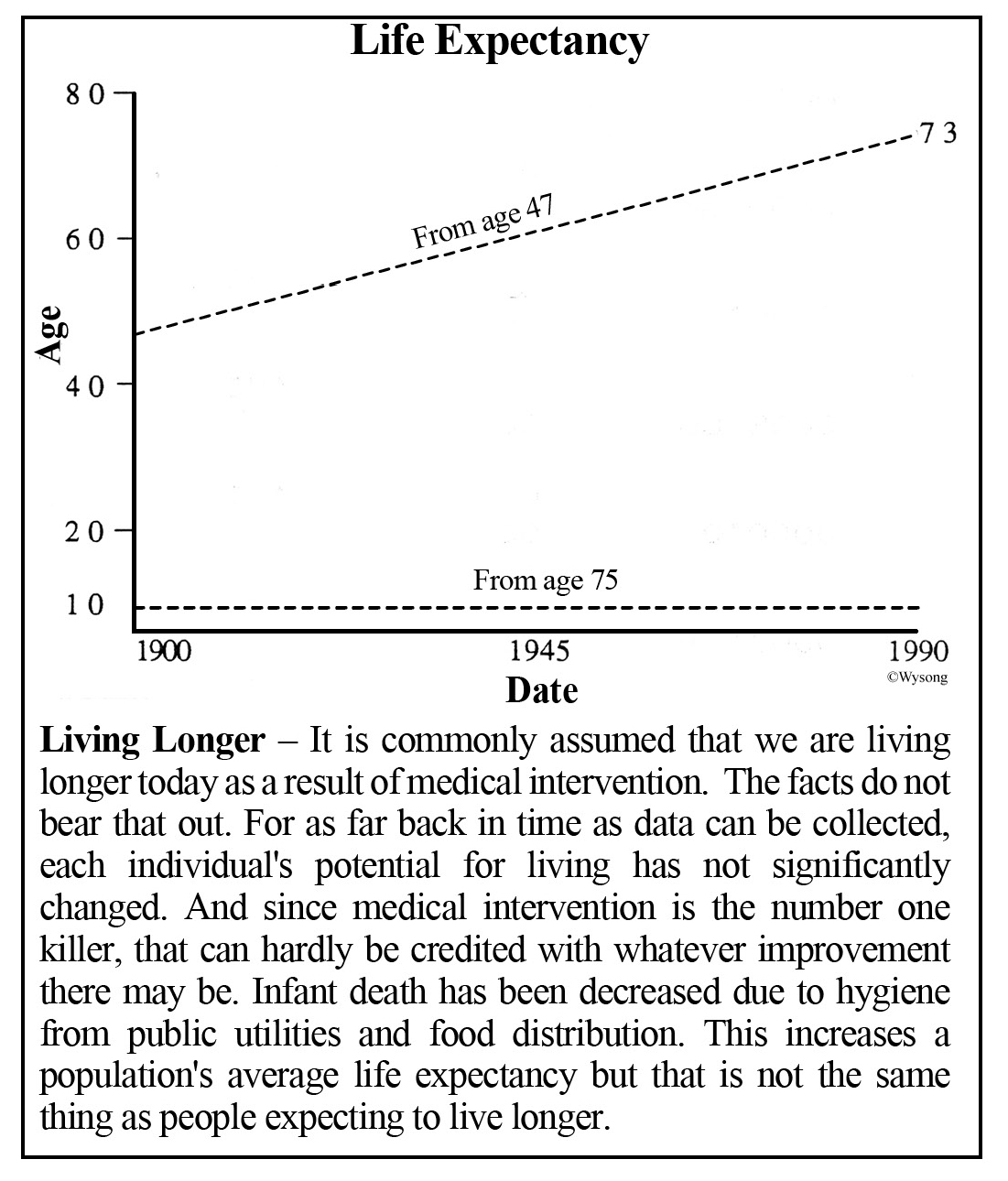Words of wisdom and miscellaneous facts by Dr. Wysong and others.
This is an accumulation over several decades and the accuracy cannot be attested to.
Wysong vs Nemos Bible Debate
COSMOLOGY LIES AS BIG AS THE UNIVERSE
⬇️ Click to scroll down to article
"We'll know our disinformation program is complete when everything the American public believes is false."
—William Casey CIA director 1981
The bigger the lie the greater its acceptance because people cannot believe authority figures would ignore reality.
To find truth we must hate the lie more than love accepted beliefs.
Fraud vitiates everything it touches. (common law maxim) Nudd v. Burrows (1875) 91 U.S. 416.
Fraud destroys the validity of everything into which it enters. Boyce's Executors v. Grundy (1830) 28 U.S. 210.
Fraud vitiates the most solemn contracts, documents and even judgments. United States v. Throckmorton (1878) 98 JU.S. 61.70.
FORWARD
The accepted cosmogony/cosmology (origin and nature of the universe) belief is:
—William Casey CIA director 1981
The bigger the lie the greater its acceptance because people cannot believe authority figures would ignore reality.
To find truth we must hate the lie more than love accepted beliefs.
Fraud vitiates everything it touches. (common law maxim) Nudd v. Burrows (1875) 91 U.S. 416.
Fraud destroys the validity of everything into which it enters. Boyce's Executors v. Grundy (1830) 28 U.S. 210.
Fraud vitiates the most solemn contracts, documents and even judgments. United States v. Throckmorton (1878) 98 JU.S. 61.70.
FORWARD
The accepted cosmogony/cosmology (origin and nature of the universe) belief is:
A Big Bang of nothing created an infinite meaningless universe containing atomic dust that gravitationally accreted into heavenly bodies including our Earthball moving in several different directions at 2.8 million mph and holding an atmosphere next to the vacuum of space while spontaneously forming life from primeval sludge that then evolved into complicated rocks called humans with no free will.
Long ago it became clear to me that the materialistic evolutionary part of that credo was false.
But I was on board with the cosmology part. After all, we see rocket ships going to and fro, there is a "Space Force," pictures of Earth and planets abound, astronauts float around and in the International Space Station, thousands of people and billions of dollars support it, and, of course, "all" the experts believe.
To question this is to be a conspiracy theorist, misinformationist, or even a lunatic. Oh my, we must, after all, follow the crowd.
The idea that we are being lied to about space didn't even enter my mind until a few months ago when what was left of my naive and trusting innocence had been totally demolished with the COVID-19 fraud.
We, the crowd, extend our trust to institutions charged with looking after our interests. But government, Big Medicine, education, media, industry, Big Tech, science, and NASA chase money, their own security, and even power over us.
That should not inspire confidence in beliefs they create, promote, protect with censorship, and even demand acceptance of.
If we want truth, we have to find it ourselves. To do that requires the opposite of trusting in others. It means sleuthing what the powers that be try to hide from us in internet archives, banned videos, censored "disinformation," and what "fact checkers" say isn't so.
Probing into the subject I was stunned to learn that:
That means unproven beliefs, stories, and even fakery are being passed off as science and truth.
This subject may seem inconsequential to everyday life. But that's only true if we aren't being lied to about it. If the truth is being hidden from us, we can be sure of one thing, it's not being done for our benefit.
Truth seekers learn that the scale and ostentatiousness of lies being fed to us means nothing can be tacitly trusted.
Everything of importance from government, media, industry, medicine, education, economics, science, history, religion, and popular society must be assumed to be false unless we prove otherwise by doing our homework and thinking critically.
This series will provide wake-up information to help you discover lies as big as the universe.
But I was on board with the cosmology part. After all, we see rocket ships going to and fro, there is a "Space Force," pictures of Earth and planets abound, astronauts float around and in the International Space Station, thousands of people and billions of dollars support it, and, of course, "all" the experts believe.
To question this is to be a conspiracy theorist, misinformationist, or even a lunatic. Oh my, we must, after all, follow the crowd.
The idea that we are being lied to about space didn't even enter my mind until a few months ago when what was left of my naive and trusting innocence had been totally demolished with the COVID-19 fraud.
We, the crowd, extend our trust to institutions charged with looking after our interests. But government, Big Medicine, education, media, industry, Big Tech, science, and NASA chase money, their own security, and even power over us.
That should not inspire confidence in beliefs they create, promote, protect with censorship, and even demand acceptance of.
If we want truth, we have to find it ourselves. To do that requires the opposite of trusting in others. It means sleuthing what the powers that be try to hide from us in internet archives, banned videos, censored "disinformation," and what "fact checkers" say isn't so.
Probing into the subject I was stunned to learn that:
| Nobody, including any scientist, can prove any aspect of the approved cosmogony/cosmology belief using experimentation and the scientific method. |
That means unproven beliefs, stories, and even fakery are being passed off as science and truth.
This subject may seem inconsequential to everyday life. But that's only true if we aren't being lied to about it. If the truth is being hidden from us, we can be sure of one thing, it's not being done for our benefit.
Truth seekers learn that the scale and ostentatiousness of lies being fed to us means nothing can be tacitly trusted.
Everything of importance from government, media, industry, medicine, education, economics, science, history, religion, and popular society must be assumed to be false unless we prove otherwise by doing our homework and thinking critically.
This series will provide wake-up information to help you discover lies as big as the universe.
"We'll know our disinformation program is complete when everything the American public believes is false."—William Casey CIA director 1981
"We know they are lying, they know they are lying, they know we know they are lying, we know they know we know they are lying, but they are still lying."—Aleksandr Solzhenitsyn
"We know they are lying, they know they are lying, they know we know they are lying, we know they know we know they are lying, but they are still lying."—Aleksandr Solzhenitsyn
|
12/30/2019
Click to enlarge, Ctrl + to enlarge further; Ctrl 0 to return to 100%
The media, medical community, academia, drug companies, schools, parents, and friends all chime in with the same mantra about how blessed we are that medicine extends our lives. People are as confident that medicine increases life span as they would be if they had a fistful of aces. But when everyone smiles and agrees, they are usually wrong and progress weeps.
The force field of "truth" surrounding this popularly held "but we live longer today" meme exempts the foundations of modern medicine from criticism regardless of their shortcomings. After all, if everyone gets to live into their seventies, on average, as opposed to dying in their twenties as a result of medical progress, what's a few shortcomings? (That would, according to the previous chapter, require the word shortcoming to mean the equivalent of five jetliners of people dying each day from medical intervention, and at least ten times that number being damaged or maimed.) Average lifespan (take note of the word average) was indeed shorter in the distant past. But why is the question. For one, life used to be staggeringly difficult. People weren't pointing and clicking sitting at a computer back then; they were hunting, gathering, laboring, and were prey themselves. With the advent of agriculture, toiling in fields from sun up to sun down with little to eat but moldy, mycotoxin-laden bread during many seasons, was a sure trip to an early death. Life was impoverished and brutal, perhaps even making death welcome. In the early cities people lived in windowless huts, on dirt floors, and were under constant threat from starvation or from the elements. Even the aristocracy in the middle centuries, died at about age 20. The cause of shortened life had nothing to do with the absence of vaccines, cholesterol medication, or MRI machines. It had everything to do with the reality of nature and the brutality of trying to eek an existence out of the land without the advantage of modern inventions. If today we toiled manually every day from the time we could walk, and were sustained with only meager insect-infested crumbs and rotten potatoes, we would not last long either, in spite of any modern medical measure. Infants, with their immature immune systems, would be particularly vulnerable and easily succumb to deadly disease. The 'old' (beyond about 35) would not have the resiliency and energy of youth and would succumb to the sheer stress of trying to stay alive. There would be no retirement or old folks' homes. If today we lived in crowded, vermin-infested cities where people threw the contents of their bedpans out the window into the streets (a common practice then), if we believed disease was caused by demons, and if it was also a matter of piety to keep the vile body filthy (it was 'sinful' to bathe), we would be dying like flies at an early age too, no matter how much medicine and surgery was offered. Pregnant moms weren't exempt from the hard life, either. They toiled in the fields and would barely take a break to give birth. Mothers were nutritionally and immunologically debilitated and passed those weaknesses to their children. The meager and often toxin-laden diet they consumed did not make for the highest quality milk for the child either. As society advanced into the Victorian era, women found nursing inconvenient or just plain did not have time due to the daily drudgery. The advice they got from the health experts of the time was to feed children the following recipe: baked flour, bread crumbs, a little sugar, and water boiled for up to five hours. They would feed this through a calf's teat stretched over a bottle and used for a "fortnight" (ten days).1 Couple these circumstances with the total lack of public utilities and hygiene in an increasingly congested society and it's no wonder infant death was astronomically high. Infant death was also a natural mechanism to decrease the drain on resources. In a similar fashion, wild animals will not reproduce or will produce stillbirths if the mothers are starving. High infant mortality was a part of life back then. It was not because the peasants could not whisk children off to the ER and ICU. The average life span number that is increasing and being credited to medical advances is the average age at death of the entire population. If there is a population of two, and one dies at one year of age and the other at 80, then the average life span for that population is about 40. In pre-modern populations, early deaths for adults and infants, for the reasons cited above, would make the average lifespan very low.
Even in 1900 with all the advances that had accrued by then, the average lifespan was only 47. Today it is about 73. Why? Primarily because infant mortality has decreased by some fifteen-fold since 1900. Infants have fared better in modern times, as have adults, because of the ease of life, the ready availability of adequate and safe food, decreased physical stress and danger, and public hygiene created by utility infrastructure.
So yes, the average lifespan has increased, but note that modern medicine cannot lay claim to that success any more than a rooster can boast responsibility for a sunrise. It is a simple play on statistics, bringing to mind George Burns' humor, "If you live to the age of a hundred, you have it made, because very few people die past the age of a hundred." The delicious irony here is that the heroes of the average increased life span we now enjoy are food truckers and plumbers. Not quite as sexy as high-tech medicine, but true nonetheless. In the meantime, modern medicine attempts to take credit. Like a cheerleader taking responsibility for a team win, modern medicine just happens to be at the right place at the right time in history.
Besides, when we think about living longer are we really concerned about a statistical average of deaths or do we want to know if individually we have more potential for living longer? Potential for long life is called longevity. If we have moved into adult years and beyond the risk of infant death and starvation, are the odds better today for living into advanced old age?
To examine this, let's get some terms out of the way. Maximum life potential is the age at death of the longest-lived member of a species. For humans this is believed to be about 115-120 years. It has not changed. Life span is the age at which an average individual would die if there were no disease or accidents. That is about 85 years. It has not changed. Life expectancy is the expected age at death of an average individual at a given age in a population allowing all factors for mortality such as disease and accident. That is approximately 73 to 74 years at birth. After a person reaches 40, there has been very little change in life expectancy. After 75 there is none. So, removing decreased infant deaths from averages, and omitting the role of plumbers and food truckers in giving us health, there is really no reason at all to be heartened by the capabilities of medicine in helping us to live longer today.
If one considers quality of life, that is, life lived free from debilitating disease (disease that medicine should be preventing and curing but is not), we are in fact headed in the wrong direction. For example, more than one in three die from cancer today and about one in two die from heart disease.2 And no, it is not because we are living longer.
Prior to 1900, atherosclerosis (heart attack) was practically unheard of. Obesity, diabetes, arthritis, cancer, autoimmunities, and the whole range of modern day degenerative diseases sucking the life out of people and the economy were rare. It is true that understanding of disease back then was poor, lumping many things under "evil spirits" or "consumption," but there is no paleopathological evidence suggesting that they experienced anywhere near the incidence of these diseases we now do. Moreover, extant primitive societies today with no medical care whatsoever, given adequate natural food supplies, predictably do not get these diseases to any extent.3 Although we have more years to live in our modern day, we have less good life in those years. We are a society of walking wounded. Like a heavy November cloud descending upon us in midlife, we must greet our remaining years with the sense that we are living the adverse reactions listed on a drug bottle insert. Meanwhile, the focus of medicine has become keeping people alive in a hospital bed as long as possible. The medical lobby would rather that we not know this sad state of affairs and that we continue under their spell. It's in their vested interests for us to continue to believe they hold the key to long life. To them health is, you know, mammograms, pap smears, prostate checks, angioplasty, yearly checkups, gobbling pills like a famished chicken pecking up corn kernels, and, of course, always a new vaccine or drug just on the horizon to save us all. Better to put aside the fairy tale that modern medicine is going to save us from degenerative disease and extend our lives. It won't, but we individually can. If you agree, disagree, have questions, or have a correction please let me know. Comment below or email me at [email protected]
Leave a Reply. Choose Any Name
Comments
|
Introduction
1. We Can Agree 2. Possibility Thinking 3. The Solver Principles 4. Our Owner's Manual 5. We Live in A Unique Time 6. Being Health Smart 7. The Illusion of Youth Health 8. The Good Old Days 9. Timing Life 10. Exercise 11. Hormones and Steroids - A Two-Edged Sword 12. The Female Hormone Problem 13. Growing Older 14. Squaring the Curve 15. Healthy Dos and Don'ts 16. The Medical Profession 17. The Greatest Threat to Health 18. Don't Surrender to Medical Care 19. But We Live Longer Today 20. Dollars Don't Make Health 21. Disease Does Not Strike Us 22. Germs Don't Cause Disease We Do 23. From Where Does Healing Come 24. The Best Food 25. Food Ethics 26. Healthy Weight 27. Healthy Eating Ideas 28. First Things First 29. Hopelessness 30. Depression 31. Memories 32. Addiction 33. Blaming the Parents 34. Surviving Tragedy 35. Touch 36. Music as Healer 37. Humor 38. Pets as Life Savers 39. Pet Keeping - A Serious Responsibility 40. The Myth of 100 Complete Pet Foods 41. Feeding Pets as Nature Intended 42. Industry vs. Earth 43. Population 44. Modernity's Deception 45. Animal Rights 46. Biophilia 47. Respect for All Life 48. Doing Good With Business 49. The Global Economy 50. The Power of Money 51. Financial Affairs 52. Work as Friend 53. Government 54. The End of Civilization 55. Freedom Is Not Equality 56. Sex 57. Being in Love 58. Marriage - The Union of Opposites 59. Divorce 60. The Family Nest 61. Having Babies 62. Children 63. The Empty Nest 64. Experience 65. Education 66. Life Is Uncertain 67. Things Mound Up 68. Murphy's Law 69. Life's Predictability 70. Finding Home 71. Learn From History 72. Shaping the Future 73. The Other Line Always Moves Faster 74. Little Things Add Up 75. Growing Up 76. Alone 77. Hope 78. Paying the Success Price 79. Change A Wonderful Thing 80. Being the Best You Can Be 81. Do Something, Something Happens 82. Change the World 83. Growing Good People 84. Words 85. Genius 86. Listen and Learn 87. Mind Over Matter 88. Looking Good 89. Protecting Yourself 90. Self Sufficiency 91. Life Is Math 92. Ethics 93. Conscience 94. The Long View 95. Being Real 96. Change 97. End and Beginning Figures |


 YouTube
YouTube Podcast
Podcast



 RSS Feed
RSS Feed
 Twitter
Twitter
0 Comments